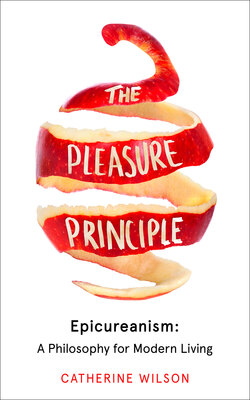Читать книгу The Pleasure Principle - Catherine Wilson - Страница 17
The Material Mind
ОглавлениеThe spirit … is born with the body, develops with it, and succumbs with it to the stress and strain of age.
Lucretius
Even if you are not tempted by Creationism, you may well wonder how conscious awareness and the power of perception and thought – mind or spirit – could arise from combinations of material particles. In keeping with their sparse ontology of atoms and void, the ancient Epicureans declared the soul – the principle of movement, sensation, experience and thought in living beings – to be composed of a special sort of atom. ‘Soul atoms’, they proposed, were especially small, especially mobile and very lively. They pervaded the limbs of the human body, enabling us to think, feel and move. Unlike the soul of Christian and other theologies, the Epicurean soul was not immortal or an object of special care and concern by contrast with the body.
We feel and know that we are wholly united with our bodies, says Lucretius. ‘The spirit’s interpenetration of the body through veins, flesh, sinews and bones is so complete that even the teeth are given a share in sensation, as is shown by toothache, or the twinge caused by icy water, or the crunching of rough grit concealed in a piece of bread.’ Too much wine has the effect of ‘confounding the spirit within the body’. Now, ‘the limbs become heavy; [the drunkards] reel about with staggering steps; the tongue drawls, the mind is sodden, the eyes swim’. In an epileptic fit ‘the spirit in every part of their frame is so distracted by the violence of the seizure that it surges and foams, just as the waves of the salt sea seethe beneath the furious force of the winds’.
Because body and mind are entirely interwoven, the body cannot live on and experience sensation without its mind, and the mind divorced from the body cannot produce any thought or movement. At the moment of death, the soul particles escape into the surrounding atmosphere without causing any immediate change in the weight or shape of the body. ‘It is like the case of a wine whose bouquet has evaporated, or of a perfume whose exquisite scent has dispersed into the air, or of some object whose flavour has departed.’ The death of the body most certainly means the permanent annihilation of that body’s mind.
